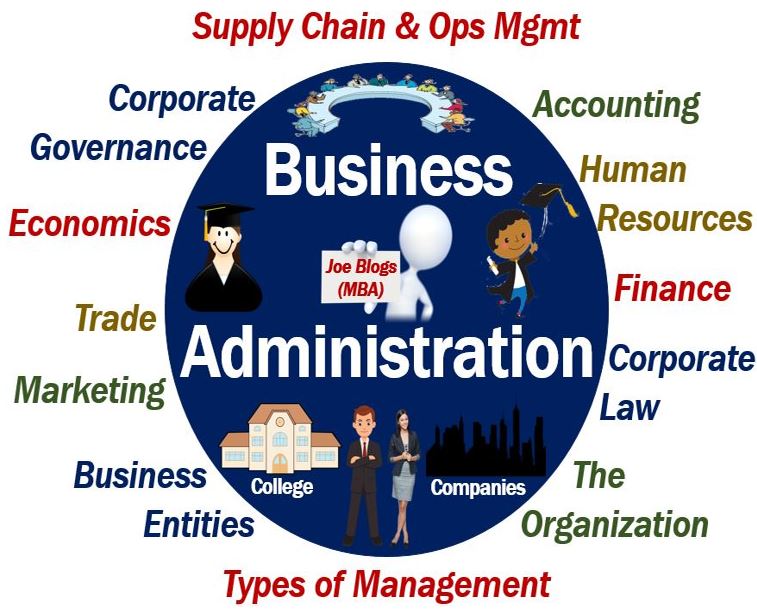In most cases, the term, Business Administration, refers to the programs available in colleges. Specifically, programs that teach the basic principles and practices of a business. These academic programs are designed to provide students with a foundational understanding of business theory, alongside practical skills for real-world application.
The term also refers to the management of a business, i.e., management in all aspects. This includes finance, marketing, human resources, and accounting. It also includes business operations.
MBA courses can be expensive
MBA stands for Master of Business Administration. It is a post-graduate program that provides people with the skills they need to manage a business.
Universities and colleges across the world earn significant incomes from their business administration courses.
An MBA course at the Wharton School of Business, for example, costs $141,740. MBA stands for Masters in Business Administration, i.e., it is a post-graduate degree. The Wharton School of Business is part of the University of Pennsylvania.
Business Administration – day-to-day operations
A business administrator is usually somebody who has studied business administration and is in charge of the day-to-day operations of a company. They are also in charge of the planning of long-term strategies and projects.

Common day-to-day operations may include:
- Working individually and as a team.
- Organizing and supervising staff members.
- Hiring new people.
- Motivating employees.
- Reporting and overseeing the main aspects of the business.
Business administration career prospects
As a business administrator, you can reach top positions. You can, for example, eventually become a company’s CEO, CFO, or General Manager. CEO stands for Chief Executive Officer. CFO stands for Chief Financial Officer.
When starting this career, people qualify for basic management positions and gradually make their way up the corporate ladder.
Apart from academic qualifications, a good business administrator must have certain skills. Adaptability, being able to multi-task successfully, and leadership skills, for example, are vital. You must also be a good leader who can motivate people.

If you are considering starting a degree in Business Administration, bear in mind that it comprises many areas of business.
Courses such as marketing, finance, accounting, human resources, and ethics are common. The course outline also includes project management and global business.
Furthermore, emerging fields like digital marketing, data analytics, and sustainability practices are increasingly incorporated to reflect modern business challenges and opportunities.
This holistic approach equips students with a comprehensive understanding of contemporary business dynamics, preparing them for leadership in a rapidly evolving global market.
